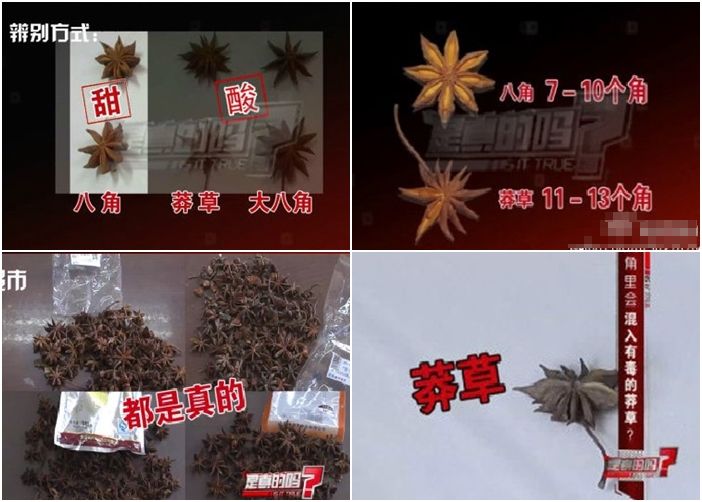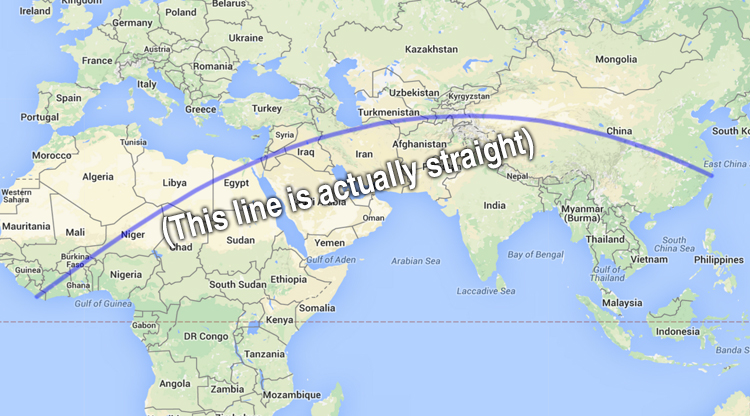Just because there weren't already enough food safety scandals in China to worry about, here's another: your star anise might be poisonous.
Unscrupulous sellers are now marketing Japanese star anise as Chinese star anise. Despite the name, however, we're not talking peaches or milk here: the Japanese version is far from a luxury upgrade. In fact, Japanese star anise isn't even edible. Highly toxic and capable of inducing serious neurological effects such as seizures, the plant is burned only as incense in its native land.
Here's the predictable clincher, however: it's a lot cheaper to produce than Chinese star anise: At about one-third of the price, merchants in the PRC are now selling Japanese star anise as Chinese star anise and pocketing the extra profit. Here's how you can tell the two apart and avoid being cheated and poisoned:

1) When you bite into a Chinese star anise, it should taste sweet; with a Japanese star anise, however, the taste is sour.
2) Chinese star anise have 7-10 points, whereas Japanese have 11-13.





















0 User Comments